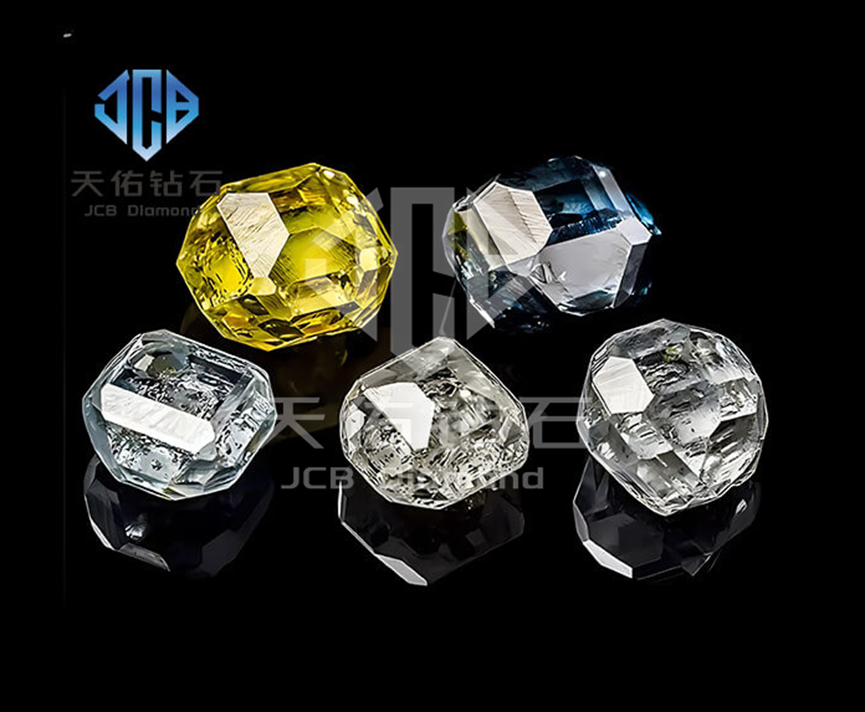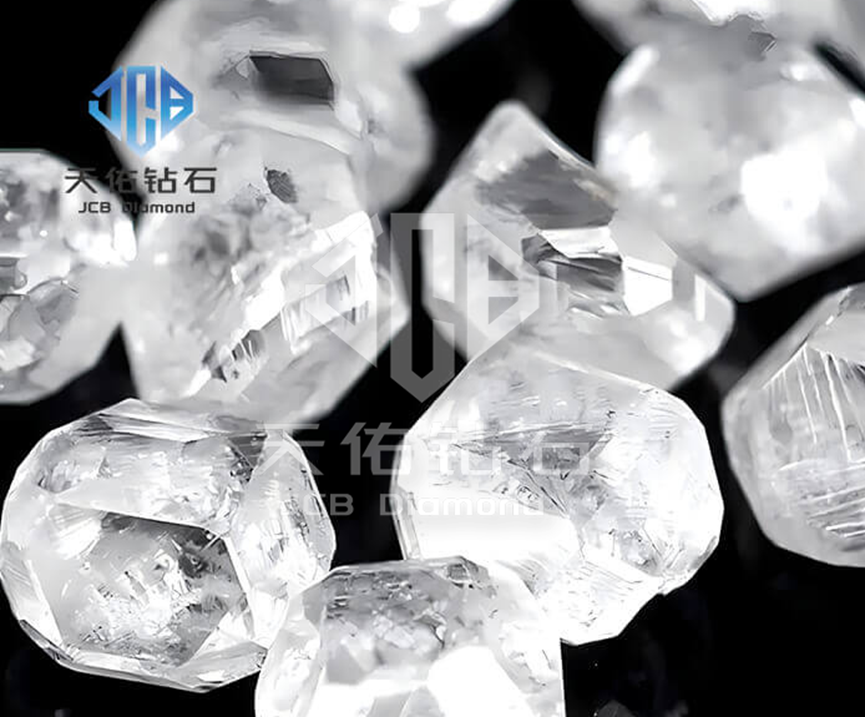I. Introduction
(I) Research Background
With the growing demand for diamonds in the jewelry industry and the development of synthetic diamond technology, HPHT (High-temperature and High-pressure) rough diamonds, as an important type of synthetic diamond, have received widespread attention. In-depth research on them will help understand the market dynamics and technological development trends of synthetic diamonds.
(II) Research Purpose
This report aims to comprehensively analyze the production process, quality characteristics, market performance and future development potential of HPHT rough diamonds, and provide decision-making basis for related companies and investors.
II. Overview of HPHT Rough Diamonds
(I) Definition and Principle of HPHT Rough Diamonds
The basic principle of HPHT rough diamond synthesis is explained, that is, by simulating the high temperature and high pressure environment formed by natural diamonds, carbon atoms are crystallized to form diamonds. Explain the growth process of HPHT rough diamonds under this process.
(II) The difference between HPHT rough diamonds and natural diamonds
Compare the similarities and differences between HPHT rough diamonds and natural diamonds in terms of chemical composition, crystal structure, physical properties, etc. Use professional detection methods, such as spectral analysis and microscopic observation, to show the differences between the two.
(III) Production process of HPHT rough diamonds
Describe in detail a series of production links from raw material preparation, equipment debugging to rough diamond synthesis and subsequent processing. Analyze the impact of each link on the quality and output of rough diamonds.
III. Quality characteristics of HPHT rough diamonds
(I) Color
Study the common color range of HPHT rough diamonds, such as white, yellow, etc., and analyze the factors affecting color, such as impurity content, growth conditions, etc.
(II) Clarity
Through microscopic observation, explain the types and distribution of defects inside HPHT rough diamonds, and explore methods to improve clarity.
(III) Cut and carat weight
Analyze the characteristics of HPHT rough diamonds in cutting design and the impact of carat weight on their value.

IV. Market analysis of HPHT rough diamonds
(I) Market size and growth trend
Collect the market sales data of HPHT rough diamonds in the past few years, analyze the changing trend of market size, and predict the development trend in the next few years.
(II) Major manufacturers and market share
List the major HPHT rough diamond manufacturers in the world and analyze their market share and competitive advantages.
(III) Market application areas
Discuss the application of HPHT rough diamonds in jewelry, industrial fields, etc., and analyze the demand characteristics of different application fields.
V. Technological development of HPHT rough diamonds
(I) Existing technical bottlenecks
Analyze the challenges faced by current HPHT rough diamond production technology in increasing output and improving quality.
(II) Technological innovation trends
Introduce new technologies being developed in the industry, such as the application of new catalysts and improvements in production equipment, and explore the impact of these technological innovations on the future HPHT rough diamond industry.
VI. Conclusion and Outlook
(I) Research Conclusion
Summarize the characteristics, market performance and technological development of HPHT rough diamonds, and summarize the main findings of this study.
(II) Future Outlook
Predict the future development trend of HPHT rough diamonds and provide suggestions for related companies and investors.
